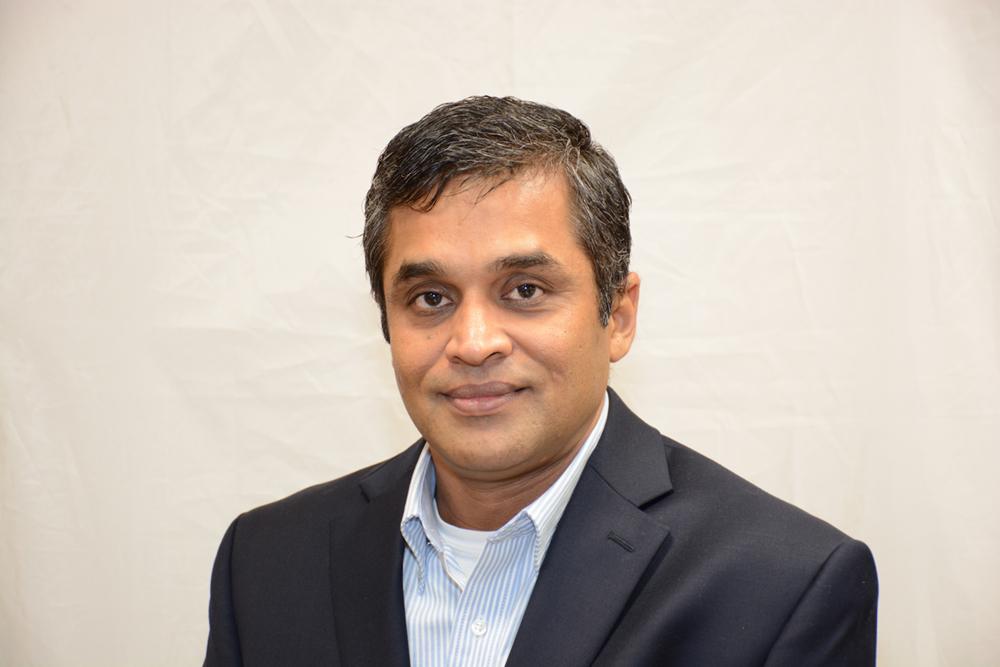I believe in the 10X growth model. I find 10 users to provide valuable feedback on my product. I then find 100 users who continue to add perspectives and constructive feedback. I continue along the path to 10,000 users as I scale.
Laxman Sankaran is an inventor and entrepreneur with more than 18 years of experience in programming and software development for organizations, including the U.S. government and Fortune 100 companies. He’s proficient in native app development and leads product teams in architecture, e-commerce, mobile, and SaaS.
In 1998, he founded Backbone Business Solutions Pvt. Ltd. in India, where he launched 24 Internet cafés in 18 months with yearly revenue exceeding 23 million rupees per center (about $369,000). Laxman subsequently sold it to Vakharia Systems in 2001.
Following his passion to empower all people with an idea or a business to develop their own app, he built AppNotch, a do-it-yourself native app builder, in January. The core engine of the product would ultimately be his finest work and the centerpiece of his new company.
AppNotch converts websites into native apps that can be found in the Google Play Store and iTunes. Laxman has a vision to roll out a series of native app-related tools and products. He has a bachelor’s degree in computer science from the University of Madras and a master’s in computer science from the University of Alaska Fairbanks.
Where did the idea for AppNotch come from?
The idea for AppNotch came from my belief that everyone should have access to native app technology. I didn’t want the barrier of expense or a lack of developers to prevent others from growing their businesses or sharing their ideas.
What does your typical day look like, and how do you make it productive?
I manage the architecture of our projects. I provide specific projects to my development team so each player understands his or her role and overall contribution to the team. I empower my team members to perform, which is how I best utilize them. You have to trust your people; they’ll rise to the occasion.
I also spend at least one hour per day in silence or meditation to contemplate new ideas or solutions for particular problems. That time allows me to see problems as opportunities without the clutter of emotion.
How do you bring ideas to life?
It’s a simple process. First, I ask, “What are my customers asking for? What does everyone want but can’t seem to get?”
Then, I ask myself if I can build the solution. “Will people want to use my idea? How will they use it?”
Lastly, I try to fail fast and fail often to arrive at my answer to either bring the idea to life or shelve it for another day.
What’s one trend that really excites you?
Mobile technology is exciting. Everyone has a smart device of some kind, and this is the world I understand. I feel thrilled to have the opportunity to bring value to my customers.
What is one habit of yours that makes you more productive as an entrepreneur?
I am a programmer by trade and a dreamer at heart. I am not afraid to try. I am not afraid to fail. I learn from the process and become better each day.
If you were to start again, what would you do differently?
I now understand the importance of surrounding myself with smart people with complementary capabilities. I know I don’t have to be the smartest person in the room on every topic, so long as someone on my team is.
As an entrepreneur, what is the one thing you do over and over and recommend everyone else do?
I believe in the user experience. If your customers enjoy using your easy-to-use tools so much that they resemble a game, you know you did a good job. That’s also the reason I hired a chief experience officer.
What is one strategy that has helped you grow your business?
I believe in the 10X growth model. I find 10 users to provide valuable feedback on my product. I then find 100 users who continue to add perspectives and constructive feedback. I continue along the path to 10,000 users as I scale.
What is one business idea that you’re willing to give away to our readers?
We will be launching Plus Framework as an open-source solution to teaching and building native applications. Regardless of programming language preference or framework preference, there are common steps all programmers undergo. We want to make a universal platform that, in a sense, eliminates the lab setup part of building an app so programmers can move quickly to the “lab experiment” part of building an app.
What is the best $100 you recently spent? What and why?
I had dinner with my team members, Chris Feix and John Abkemeier, in which we outlined a new product idea that will be disruptive and fun at the same time.
What people have influenced your thinking and might be of interest to others?
He has an insightful blog about lean UX.
Connect:
Laxman Sankaran on LinkedIn:
AppNotch on Twitter: @appnotch
Mario Schulzke is the Founder of ideamensch, which he started a decade ago to learn from entrepreneurs and give them a platform for their ideas.

